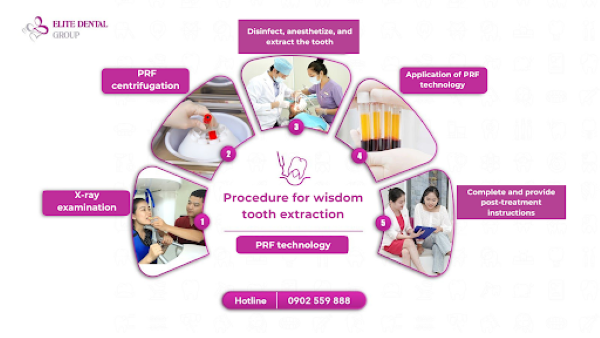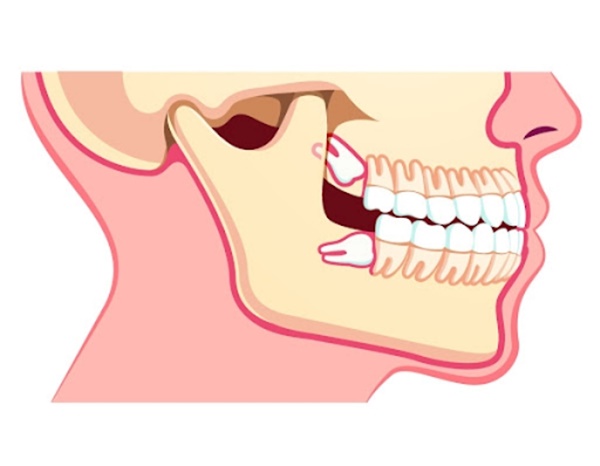Root canal treatment helps you control and eliminate the pain and discomfort caused by pulp inflammation, thereby improving chewing function effectively.

Book A Consultation

Root canal treatment, also known as endodontic treatment, is a solution to remove damaged tooth pulp, relieving you from pain and discomfort while effectively preserving your natural tooth. So, what is the process of root canal treatment, and where can you find a root canal dentist? Let’s find out about Elite Dental in the following article.
What Is Root Canal Treatment?
The pulp of a tooth is a special connective tissue that contains numerous nerves and blood vessels. It is located within the pulp chamber and is surrounded by the hard tissues of the tooth, including the enamel and dentin.
The pulp plays a role in tooth development, providing nutrition and transmitting sensations. When the tooth pulp is damaged due to bacterial invasion (from tooth decay or the gums surrounding the tooth), fractures, or trauma, it can cause painful sensations, swelling, or infection. In such cases, root canal treatment is required for treatment.
Root canal treatment (endodontic treatment) involves removing the damaged pulp entirely (including the pulp chamber and root canals). Afterward, the canals are sealed, and the tooth is restored, preventing the need for extraction.
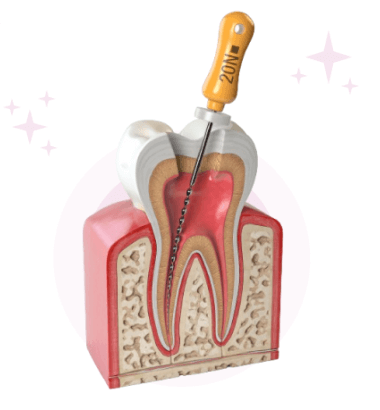
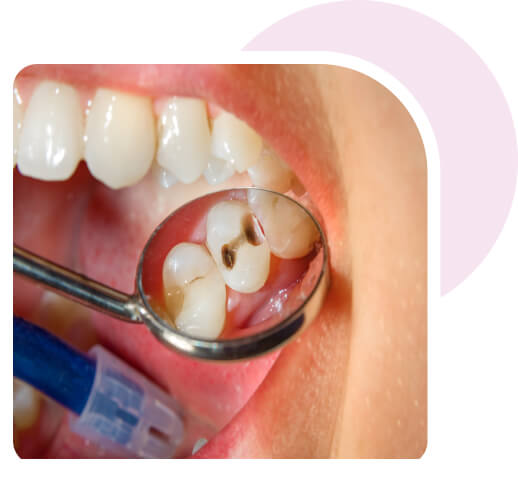
In Which Cases Is Root Canal Infection Treatment Needed?
Root canal treatment is recommended by dentists when teeth show signs of:
Exposed pulp due to severe tooth decay or significant crash.
Excessive grinding of teeth.
Severe conditions in the root area, such as infection or gum swelling.
Extensive cavities, tooth fractures, advanced periodontal disease that has reached the pulp, leading to pulpitis, pulp necrosis, and irreversibility.

Why Should Root Canal Treatment be Done as Early as Possible?
When your dentist recommends root canal treatment, it is advisable not to delay and to undergo the treatment as soon as possible for the following reasons:
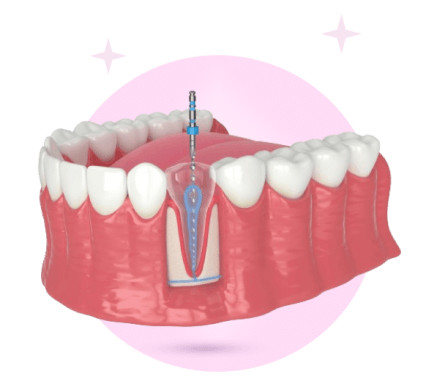
Cease pain and discomfort, improve chewing
Save the tooth and avoid extraction
Early root canal treatment helps protect the structure of neighboring teeth and tissues from bacterial destruction, maximizing the preservation of your natural tooth and avoiding the need for extraction.
Prevent the spread of infection to surrounding tissues or other teeth
By removing the infected pulp, root canal treatment helps prevent the risk of infection spreading to surrounding tissues (bone, gums, periodontal ligament) or other teeth.
Avoid serious complications to overall health
Timely root canal treatment is an optimal solution to prevent systemic infections and the harmful health complications they can cause, such as tooth abscess, bone loss, stroke, heart disease, and so on.
How Is A Root Canal Procedure Performed?
The root canal treatment procedure is carried out in sequential steps as follows:
Examination and assessment of the tooth's condition
Anesthesia and initiation of root canal operation
Filling the root canal and restoring the tooth

Step 1: Examination and assessment of the tooth’s condition
The endodontist will examine your tooth and evaluate the extent of the damage. X-rays will be taken to assess the internal condition of the pulp chamber, root canals, the presence of infected periapical tissues, and the extent of bone loss.
The dentist will discuss and explain the condition, treatment plan, duration, and cost to you. This helps you understand the purpose of root canal treatment, prepare properly, and cooperate well with the dentist to quickly alleviate the pulp pain, restore normal chewing function, and most importantly, preserve the tooth.
Step 2: Anesthesia and initiation of root canal operation
Before the procedure, the dentist will administer anesthesia to numb the area, reducing pain and discomfort during the treatment. Then, the dentist will begin by creating an access point to the root canal system, removing the infected or damaged pulp, thoroughly cleaning the root canal system, and reshaping it.
Step 3: Filling the root canal and restoring the tooth
Once the root canal is thoroughly cleaned, and the tooth is no longer painful, the dentist will fill the root canal system. The upper part of the tooth will be restored using new filling material, removing any remaining decayed tissue or previous poorly sealed fillings. Finally, a dental crown or filling will be placed to cover and protect the entire tooth, ensuring proper chewing function and prolonging the lifespan of the treated tooth.
(*) After root canal treatment, patients may experience mild discomfort for the first 1-2 days. This is a normal phenomenon, and there is no need to worry. If severe pain persists or does not improve, it is recommended to contact the dentist for appropriate treatment.
Root canal treatment is a dental procedure that is not overly complicated. Typically, a root canal treatment session requires more than one appointment, depending on the complexity, location of the tooth, and the patient’s schedule. The treatment duration for one appointment can range from 30 to 90 minutes.
(*) In cases requiring multiple appointments, after the first appointment, the dentist will place temporary filling and antimicrobial medication in the root canal to prevent food debris from causing further infection.
4 Benefits of Choosing Root Canal Treatment at Elite
Comprehensive and Dedicated Consultation – Maximum Safety Assurance

As a specialized dental center with each specialty having a team of skilled and experienced doctors who continuously deepen their knowledge, Elite Dental is a reliable choice for many customers seeking root canal treatment.
Skilled and experienced specialists
Elite Dental is a reputable address for root canal treatment, with a team of highly skilled and experienced specialists who provide dedicated consultation to protect oral health and maximize tooth preservation.
Quick and gentle root canal procedure
General and endodontic specialists at Elite Dental have proficient skills in performing quick and accurate root canal procedures while ensuring a gentle approach and minimizing any sensations of swelling, pain, or discomfort for the patients.
Modern equipment for examination and treatment
Elite Dental consistently invests in modern equipment and machinery to support treatment, providing a positive and comfortable experience for customers. Particularly, strict sterilization procedures are followed to prevent cross-infections.
Reasonable, transparent, and clear treatment costs
The cost of root canal treatment is transparently communicated from the beginning, and the doctors commit to providing accurate and sufficient consultation based on the condition, without any additional fees during the process. Customers can have complete peace of mind when using the service.

How Much Does Root Canal Cost?
The cost of root canal treatment depends on the tooth’s location and the necessary procedures required based on the tooth’s condition.To accurately determine the cost for your specific dental condition, please schedule an appointment with the endodontic specialist at Elite Dental.
| SERVICE | PRICE (VND) | NOTE |
| Metal post | 500.000 | 1 tooth |
| Fiber post | 900.000 – 1.100.000 | 1 tooth |
| Calcium hydroxide filling | 300.000 – 400.000 | 1 time |
| Endodontics incisor and canine | 3.000.000 – 3.600.000 | 1 tooth |
Endodontics premolar | 3.500.000 – 4.200.000 | 1 tooth |
| Endodontics molar | 4.500.000 – 5.400.000 | 1 tooth |
Re-treatment incisor and canine | 3.500.000 – 4.200.000 | 1 tooth |
| Re-treatment premolar | 4.600.000 – 5.500.000 | 1 tooth |
Re-treatment molar | 6.200.000 – 7.500.000 | 1 tooth |
| Root canal primary incisor + GIC filling | 1.500.000 – 1.800.000 | 1 tooth |
Root canal primary molar + GIC filling | 2.200.000 – 2.700.000 | 1 tooth |
| Pulpectomy (pulp removal) + GIC filling | 1.800.000 – 2.200.000 | 1 tooth |
| MTA filling – incisor and canine | 1.000.000 | 1 tooth |
| MTA filling – premolar | 2.000.000 | 1 tooth |
| MTA filling – molar | 3.000.000 | 1 tooth |
Root canal crowning | 300.000 – 500.000 | 1 tooth |
| Internal tooth whitening | 600.000 – 800.000 | 1 time |
Transparent costs, honest consultation, no additional charges.
Various payment methods are available for maximum convenience.
Prices may vary depending on the specific condition of each patient and the chosen treatment method. Please contact Elite Dental for accurate consultation and pricing.

Experience
Root Canal Treatment at Elite Dental
No More Pain and Discomfort
Improving Oral Health
Notes for Root Canal Treatment
In addition to choosing a reputable facility with skilled professionals, consider the following points to ensure a smooth root canal treatment process and maintain the strength of your teeth after treatment:
Before treatment
- Contact your dentist for a thorough examination of your teeth, gums, and jawbone to determine the appropriate filling material.
- Undergo recommended procedures (such as X-rays, blood tests, etc.) to ensure that your current health condition meets the requirements for the upcoming procedure.
- Inform your dentist about your health condition and any allergies you may have before undergoing root canal surgery.
- Maintain proper oral hygiene as instructed by your dentist to stabilize inflammation, prevent further complications, and reduce the risk of infection during the procedure.
During & after treatment
- Maintain a relaxed mindset and listen to your dentist’s advice to facilitate a smooth treatment process.
- Notify your dentist immediately if you experience discomfort or pain during the filling process.
- Avoid chewing on the treated tooth for a few hours after the root canal treatment to prevent dislodging the filling material. You can resume normal chewing once the tooth is protected by a crown.
- If you have a two-session root canal, consume soft foods to avoid putting pressure on the tooth undergoing treatment.
- Brush your teeth gently and use dentist-prescribed antibacterial mouthwash.
- Schedule regular follow-up appointments as advised by your dentist to check the filled area, and porcelain crown, and maintain oral hygiene.
- Maintain regular dental check-ups every 6 months, including professional teeth cleaning.
FAQ About Root Canal Treatment
Should I get a root canal treatment?
Whether or not to get a root canal treatment will be determined by your dentist after an examination. If your dentist recommends a root canal treatment, you can proceed with confidence as this method helps eliminate bacteria from the infected pulp chamber, alleviates pain, prevents further infection, and preserves your natural tooth as much as possible.
If I have pulpitis, can it be treated by just removing the pulp, or does the tooth need to be extracted?
To determine if pulpitis can be treated by removing the pulp or if the tooth needs to be completely extracted, you should visit a dentist for an examination, consultation, and appropriate treatment plan. The treatment approach varies depending on the severity of the pulpitis:
- In the early stages of pulpitis: The dentist will clean the root canals thoroughly. Then, they will remove the damaged pulp tissue and seal the canals.
- In cases of widespread or necrotic pulpitis: The dentist needs to perform root canal treatment to treat and address the condition.
- If the pulp tissue is extensively damaged and has spread down to the tooth’s root, causing significant mobility: If the tooth has minimal mobility, the dentist may perform root canal treatment and place a filling to preserve the tooth. If the tooth has severe mobility and cannot be preserved, the dentist may recommend extraction. Afterward, you may consider promptly getting a dental implant for aesthetic purposes, maintaining chewing function, and preventing bone resorption.
Does a root canal surgery cause pain?
The process of a root canal treatment does not cause pain or discomfort because the dentist will administer local anesthesia around the affected tooth before the procedure.
Can I treat a root canal at home?
It is not advisable to attempt treating a root canal at home using home remedies or pain-relieving medication. These methods provide temporary relief and cannot provide a definitive solution. Applying these methods incorrectly can worsen the infection.
Ideally, you need to go to a reputable dentist to be examined by a doctor and come up with a suitable plan to help treat root canal inflammation and prevent negative complications to your teeth and health.
Does a tooth lose its longevity after a root canal treatment?
Normally, a tooth can last for about 15 to 25 years after a root canal treatment. However, the longevity of a root canal-treated tooth may vary depending on the individual’s tooth health, the technique used during the procedure, and the subsequent care provided.
(*) To increase the longevity of a root canal-treated tooth, it is important to maintain good oral hygiene and avoid extremely hot, cold, or hard foods that may affect the tooth’s chewing function.
Root canal treatment is a fundamental procedure that requires the expertise and practical experience of a dental professional to ensure successful treatment and safety. With a team of skilled and experienced dentists and advanced equipment, Elite Dental confidently provides painless, efficient, and maximally safe root canal treatment services to their clients.
Do not delay seeking assistance for your root canal-related issues. Contact the hotline at 0902 661 100 for prompt support.









